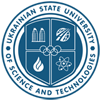Impact of Information Disorders in Librarians’ Community
DOI:
https://doi.org/10.15802/unilib/2024_318883Keywords:
information disorders, public librarians, social media information, role of librariansAbstract
Objective. Librarians' role is crucial in combating information disorders. Their ability to identify false information is a core professional competency. As librarians refine their professional identities, they also cultivate a robust knowledge practice. This paper delves into the impact of information disorders on the librarian community. Methods. A group of Filipino public librarians were interviewed to understand the librarians' perceptions of the severity and impact of information disorders on their communities. Results. After careful analysis of qualitative data, five themes emerged including credibility threat, detrimental information, unfounded claims, manipulation of information, and promotion of truthful information. Conclusions. Information disorders pose a serious threat to librarians and the public. Malicious actors exploit these to manipulate public opinion, leading to fraud and false expertise. Librarians can counter these threats by sharing credible resources. They can also address the crisis of credibility by sharing expert advice and advocating for the value of accurate information.
References
Anderson, K. E. (2018). Getting acquainted with social networks and apps: combating fake news on social media. Library Hi Tech News, 35(3), 1-6. doi: https://doi.org/10.1108/LHTN-02-2018-0010 (in English)
Barclay, D. A. (2018). Fake news, propaganda, and plain old lies: How to find trustworthy information in the digital age. Rowman & Littlefield. Retriеved from https://www.amazon.com/Fake-News-Propaganda-Plain-Lies/dp/1538108895 (in English)
Bringle, R. G., & Wall, E. (2020). Civic-minded graduate: additional evidence. Michigan Journal of Community Service Learning, 26(1), 1-18. doi: https://doi.org/10.3998/mjcsloa.3239521.0026.101 (in English)
Coward, C., McClay, C., & Garrido, M. (2018). Public libraries as platforms for civic engagement. Seattle: Technology & Social Change Group, University of Washington Information School. Retriеved from http://hdl.handle.net/1773/41877 (in English)
Hicks, D. (2014). The construction of librarians' professional identities: A discourse analysis. Canadian Journal of Information and Library Science, 38(4), 251-270. doi: https://doi.org/10.1353/ils.2014.0017 (in English)
Hranchak, T. Y. (2022). Ethical component of library competencies design: Professional view. University Library at a New Stage of Social Communications Development. Conference Proceedings, 7, 184-191. doi: https://doi.org/10.15802/unilib/2022_270199 (in English)
Kümpel, A. S., Karnowski, V., & Keyling, T. (2015). News sharing in social media: A review of current research on news sharing users, content, and networks. Social Media + Society, 1(2), 1-14. doi: https://doi.org/10.1177/2056305115610141 (in English)
Lees, C. (2018). Fake news: the global silencer: The term has become a useful weapon in the dictator’s toolkit against the media. Just look at the Philippines. Index on Censorship, 47(1), 88-91. doi: https://doi.org/10.1177/0306422018769578 (in English)
Mason, M. (2010). Sample size and saturation in PhD studies using qualitative interviews. Forum Qualitative Sozialforschung / Forum: Qualitative Social Research, 11(3). doi: https://doi.org/10.17169/fqs-11.3.1428 (in English)
McCabe, R. B. (2001). Civic librarianship: Renewing the social mission of the public library. Scarecrow Press. Retriеved from https://www.amazon.com/Civic-Librarianship-Renewing-Mission-Library/dp/0810839059 (in English)
Pedersen, K. N. (2006). Librarianship: from collections control to tools understanding, New Library World, 107(11/12), 538-551. doi: https://doi.org/10.1108/03074800610713343 (in English)
Westerwick, A., Johnson, B. K., & Knobloch-Westerwick, S. (2017). Confirmation biases in selective exposure to political online information: Source bias vs. content bias. Communication Monographs, 84(3), 343-364. doi: https://doi.org/10.1080/03637751.2016.1272761 (in English)
Wilson, P. (1983). Second-hand knowledge: an inquiry into cognitive authority. Westport, CT: Greenwood Press.
Yap, J. M., & Tafalla, D. (2021). Vaccination infodemic among citizens of Magallanes, Cavite, Philippines. University Library at a New Stage of Social Communications Development. Conference Proceedings, 6, 52-65. doi: https://doi.org/10.15802/unilib/2021_248965 (in English)
Yap, J. M., Barátné Hajdu, Á., & Kiszl, P. (2024). Professional identity and knowledge practices of librarians in critical times of information disorders: a conceptual framework. Information Discovery and Delivery. doi: https://doi.org/10.1108/IDD-09-2023-0112 (in English)








